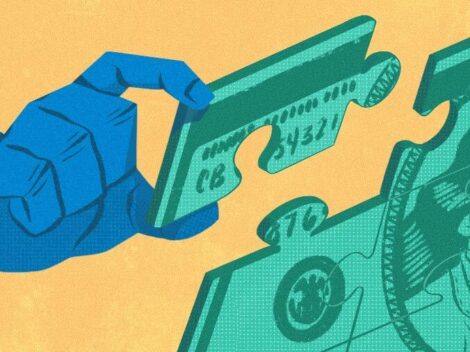The on-demand delivery space is not for the faint-hearted. So when a startup in the field says they have reached an elusive financial milestone, we pay attention.
Follow Crunchbase News on Twitter & Facebook
Last week, Austin-based on-demand delivery startup Favor announced it had become profitable — or EBITDA positive — in July. On top of recently closing a $22 million Series B round led by S3 Ventures, Favor claims it’s the first on-demand delivery company to turn a profit.
Delivering The Margin
Founded in 2013, Favor pledges to get anything you want in your city delivered to your door in less than one hour.
CEO Jag Bath is particularly proud of his company’s achievement considering the challenges so many in its space seem to have. So how did the company do it?

Bath points out that the market started to shift significantly in 2015, and investments in the sector began to dry up.
“That wasn’t because VCs lost excitement around the market size or opportunity,” Bath told Crunchbase News. “But they were seeing money poured into companies that had upside down economics, meaning they were losing money on a per-delivery basis.”
Still, many on-demand delivery companies continued to focus on geographic expansion and hiring, Bath pointed out.
“We decided to take a different approach,” he said. “We focused on every single aspect of our unit economics and how to get it to work in a really complex industry.”
Operationally, Favor chose to centralize its business. Instead of having employees scattered all over its various markets, it established all those teams at its headquarters and built better systems to support them.
The startup then did the opposite of what most of its competitors were doing. Rather than expanding its footprint, Favor pulled out of five major US markets: Chicago, Washington, D.C., Philadelphia, Miami, and Atlanta.
“As we started to look more deeply at unit economics and profitability, one thing that stood out like a sore thumb was that we were not able to deliver our value proposition in those markets, due to a variety of factors such as traffic and parking challenges,” Bath said. “We decided it wasn’t worth it if we couldn’t do what we promised.”
Favor then realized that, despite the fact that 93 percent of its delivery volume was in Texas, it was spending proportionally more resources on growing markets outside its home state. So to focus on Texas, the startup closed all of its other markets.
“We decided to double down here and maximize our market share,” Bath said.
Profits Over Scale
Six months later, Favor officially reached profitability While Bath did not disclose specific numbers, he did say the startup’s gross product sales have surged from $4 million in 2014 to $60 million in 2016. He estimates Favor will end 2017 with more than $100 million in gross product sales. The company plans to take the $22 million it just raised and continue its Texas expansion.
Since January, Favor has more than doubled the size of its delivery area in the state. The company is currently in 15 markets and aims to be in 30 by the end of 2018.
Bath believes it’s the company’s focus that has helped it reach the profitability milestone – and months ahead of schedule.
“People are trying to raise money and grow fast, but they forget about the fundamentals of the business and then they wonder why they disappear, whether it’s being picked up for pennies or having to close down,” he said.
Charlie Plauche, Favor board member and a principal at Austin-based S3 Ventures, told Crunchbase News that “Jag and the team have proven that with the right technology platform and solid execution, the on-demand delivery business model works at scale.”
The company is also down with doing good by the communities it serves. Favor has made it possible for customers to donate to victims of Hurricane Harvey. Its app enables people to buy care packages for victims, relief workers, and volunteers. Those packages are then delivered by Favor “runners.”
There’s Room In Texas
Sean Spector, co-founder and CEO of Austin-based same-day delivery service provider Dropoff, told Crunchbase News that Texas as a state is also profitable for his company. Florida is also almost profitable, he added. Overall, Dropoff is profitable in eight out of the 17 markets it serves.
“We can usually get a city profitable in less than 12 months,” he said.
But unlike Favor, Dropoff’s customers are businesses – not consumers. That’s an advantage for his company, Spector believes, because if it wins a customer in one market, it can likely win the same customer in other cities.
While Dropoff is not yet profitable as a company, Spector doesn’t appear worried.
“Right now we’re focused on scaling and growth,” he said, “and not so much making the business profitable. As we grow the cities, we’ll continue to grow their profitability, which will lead to a profitable business.”
Now it remains to be seen whether other companies in the on-demand delivery space will follow Favor on the path to profitability, or end up being one of those companies that goes away by death or consolidation.
iStockPhoto / Martin Dimitrov

Stay up to date with recent funding rounds, acquisitions, and more with the Crunchbase Daily.


![Cloud computing device. [Dom Guzman]](https://news.crunchbase.com/wp-content/uploads/Cloud_Computing-1-470x352.jpg)


![Illustration of a guy watering plants with a blocked hose - Global [Dom Guzman]](https://news.crunchbase.com/wp-content/uploads/quarterly-global-3-300x168.jpg)
67.1K Followers